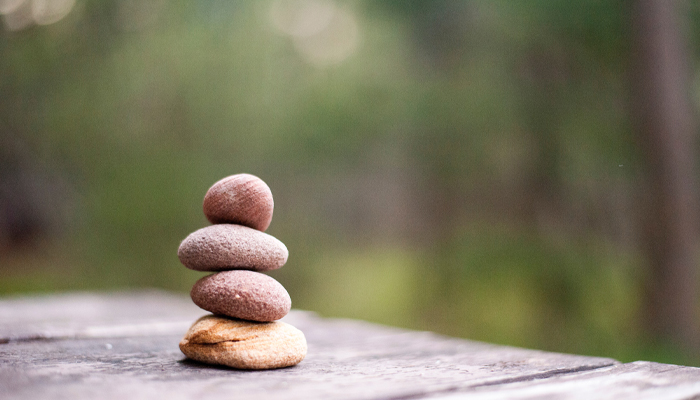
When was the last time that you were present? Many of us are floating through life, hardly present and spending most of our waking time focused on the next task or activity ahead of us. We find ourselves racing through life, only to arrive at our destination as if deposited by a tornado: sadly missing a shoe and somehow accompanied by livestock that was picked up along the way. To compensate for our chaos, we try to plan and spend a few days organizing and gathering supplies, only to forget something crucial on the kitchen counter when the day arrives. Surely there must be a better way, right?
Many of you have likely heard the term coping strategy or coping tool. Coping is a way of dealing with a stressful or difficult situation, and it can be helpful or unhelpful. If a coping strategy is not helpful, it may be temporarily beneficial, but have long-term or delayed consequences that are unpleasant. As counsellors, we tend to view substance use or addictive behaviours as unhelpful coping strategies. I encourage you to ask yourself, am I coping in a helpful or unhelpful way? Is the racing and rushing around working well for me?
One coping strategy for difficult emotions or situations is called opposite action. It may seem odd, but doing the opposite action that our emotions or instincts are wanting us to do, can be a helpful way to cope or deal with a situation. For example, when we are anxious or panicked, we may avoid or procrastinate what is causing us stress. Procrastinating only delays the anxiety and stress. Sometimes, procrastination adds to the stress, because we agonize and repeatedly think over what we have to do, coming up with worse and worse predictions of terrible consequences to the situation. Have you noticed that anxiety never predicts a happy or positive future? Your anxiety is designed to keep you in a state of fear and anxiety, so your brain comes up with worst-case scenarios that it wants you to avoid. Procrastination can result in rushing around later on, because we procrastinated too well. If procrastination is your unhelpful coping strategy, try the opposite action of doing the task without delay. Don’t give yourself time to think about the scenarios that your creative anxious mind can come up with. In the words of Nike, “just do it.”
If you find yourself rushing around and want to cope in a more helpful way, do the opposite action by slowing down. Give yourself permission to slow down. Take a deep breath. Look around you and check out the scenery. What catches your eye? Notice it and take it in. These are all ways to ground or anchor yourself in the present moment. When we are grounded, our skills and abilities are the most available to us. We are giving ourselves the best chance at success when we are grounded.
One sign that we are not grounded is being disconnected from our body. Tuning out our bodies has consequences. For instance, if we are eating, we may overeat, because we are distracted by a screen instead of noticing the cues from our body that we are becoming full. Sometimes we may not even taste our food and miss out on the pleasure of eating entirely. Tuning out our bodies and not being present with ourselves causes us to fail to listen to the cues and signals from our body. We will miss important information when we are not present. Do the opposite action: slow down and check in with the body. We can check in with our body by mentally drawing our awareness to different parts of the body or we can physically touch our body gently. We do this instinctively when we are injured. Ever get a kink in your neck and find yourself trying to massage it or stretch it? If you want to learn more about the body scan technique, check out this meditation video: MBSR Body Scan Meditation – YouTube.
Some of you may be thinking that these suggestions are well and good for single people, but what about people with families? When I was growing up, we had family dinner every night. As children, my brother and I knew that at 5pm, we would have dinner with our parents. They would ask us about our day at school and we would talk about what was happening in the family. We would always do this in the dining room and never in front of the television. This was our way of communicating important future events, such as meetings with our teacher, field trips, or family gatherings. Of course, at the time when I was younger, family dinners were sometimes tedious or I would rather be doing something with my friends instead, but now that I’m older, I can see the benefit of us gathering together and having a dedicated time to connect. Use the opposite action and apply it to your family. Set a time to connect and slow down together. Role model slowing down for your children. Children watch their parents and learn through observation, not just what you tell them. It does not have to be dinner, perhaps it is family breakfast or a family walk together. Think about what would work best for your family and how you can slow down together.
In summary, 1) ask yourself whether the ways that you deal with difficult situations are helpful to you or unhelpful, 2) consider what the opposite action would be, 3) do the opposite action, and 4) ask yourself if the opposite action was more or less helpful than your original way of coping.
We would love to hear about how you tried the opposite action tool!
